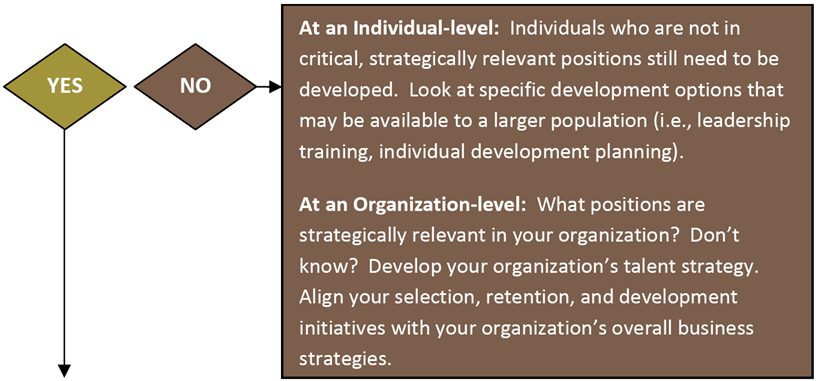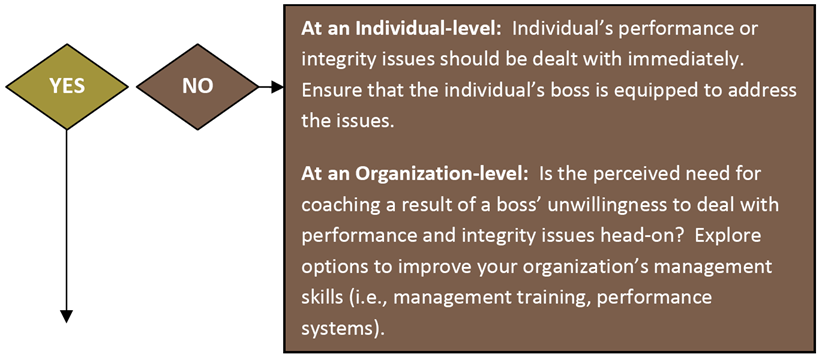Faced with smaller developmental budgets, organizations need to be selective and invest a disproportionate amount of resources in key talent. One avenue for developing top talent is hiring a coach. But, truth be told, not everyone in your organization needs a coach. And, it is not appropriate to invest in coaching for all leaders. How do you know if a coach is the best resource for a given leader?
Here are 4 questions to help you determine if a leader should work with a coach:
1. Does your organization support coaching?
In order to achieve the results intended, individuals need support not only from their coach but also their boss and peers. Studies show that support from others is a key determinant of success in developing leaders. How is coaching perceived within your organization? Is it used as a punishment? Is it given as a reward? If it is seen as an investment to maximize the potential of an already high-achiever, senior leaders are much more inclined to see coaching as an asset worth supporting.
.bmp)
2. Is the individual in (or soon to be in) a critical position?
Organizations with sound talent management processes are able to determine which individuals are in critical positions. These are the positions that have direct impact on the implementation of business strategies. Think beyond hierarchy. Many positions outside of the C-suite have strategic significance. Look at your organization’s strategy. What are the positions that provide your organization with a competitive advantage? Who are the individuals that oversee the areas of critical importance to your organization?

3. Is the individual coachable?
Is the individual aware of his/her strengths and potential improvement areas? How does this person respond to feedback? Is the individual motivated to learn and grow or change behaviors? Without an awareness of strengths and improvement areas and the motivation to change, an individual may not benefit from working with a coach. Those willing to put in the time to look at themselves objectively and the motivation to put in the effort to change behaviors, see the greatest return from working with a coach.
.bmp)
4. Are behavior change and learning the primary drivers for coaching?
Coaching is not a panacea for every issue. Coaching is not recommended to “fix” a problem employee as a last ditch effort before termination. Nor is it recommended as a “cure” for integrity issues or unethical practices. Coaching is most successful when the focus of the client-coach relationship is a change in behavior. For example, a leader may need to learn how to work with peers, build an effective team, or adapt their leadership style.

If the answer to each of the above is “yes,” an individual’s partnership with a coach is more likely to result in success. The next step is to find the right coach (5 Tips to Select a Coach).
 Twitter
Twitter

